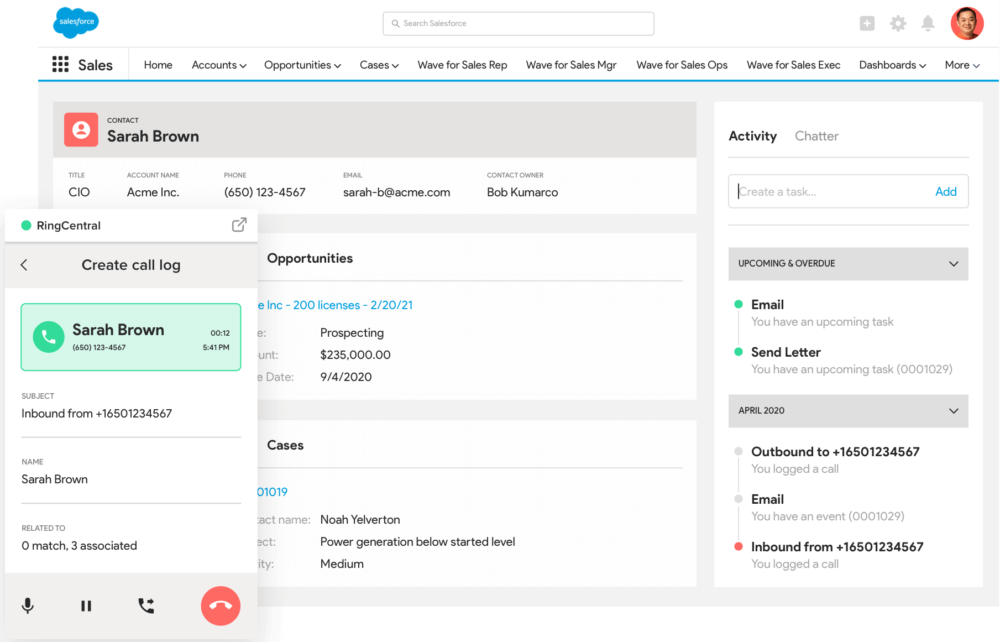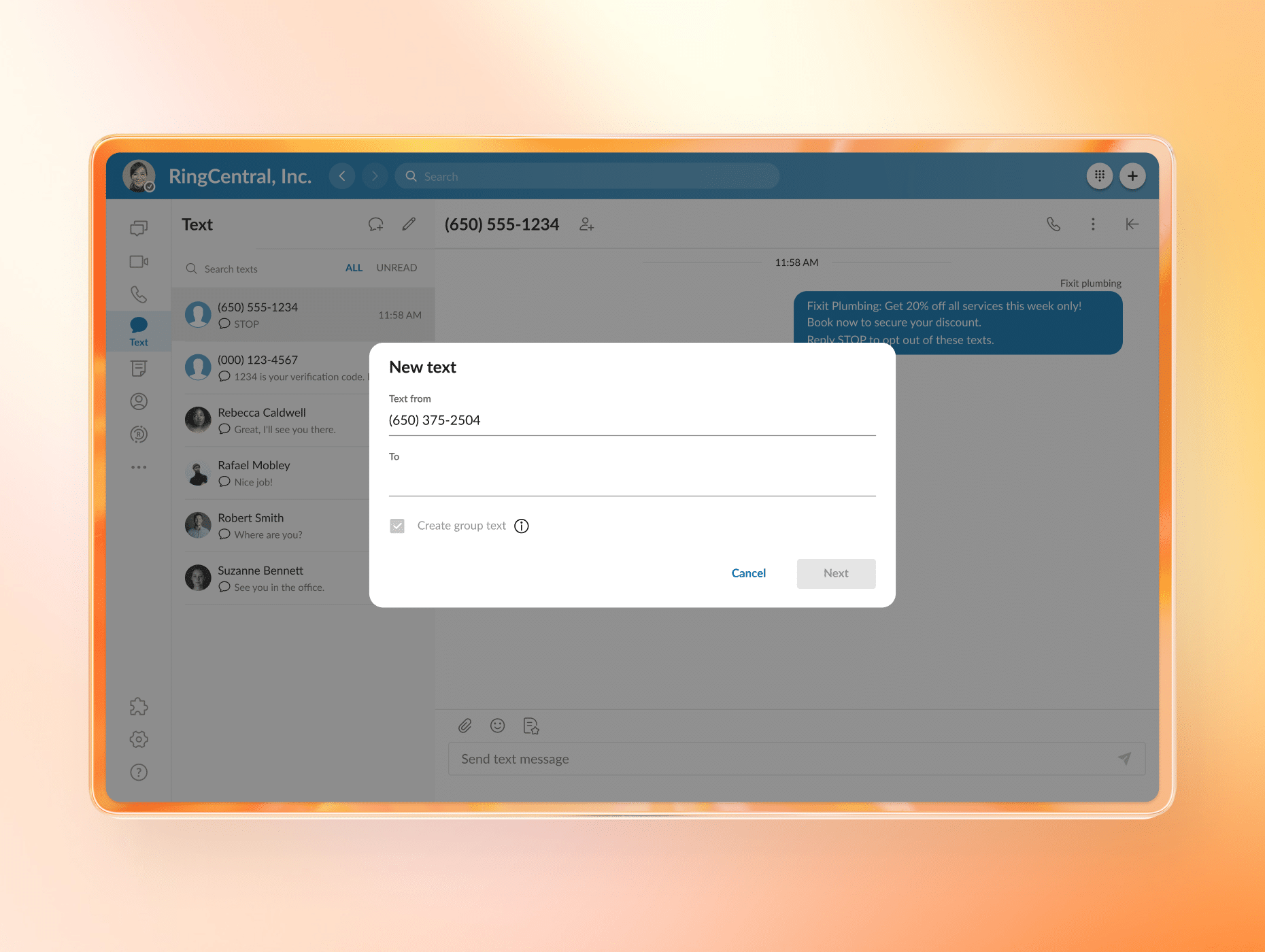Business phone etiquette is incredibly important when it comes to customer satisfaction. A phone call might be their very first time interacting with your business, and first impressions matter.
That’s why we’ve rounded up these ten tips to help you keep your calls friendly, helpful, and professional.
🗣 The research is in: Phone calls aren’t going anywhere. Get the facts in our Power of voice communication at work report.
10 business phone etiquette tips
Here are the top 10 business phone etiquette tips that will make your business stand out.
1. Be prepared
Taking and managing calls can be hard, but preparing ahead for calls makes them much simpler to manage. Have a keyboard or pen and paper at the ready for notes, and make sure you understand your products, services, and customers thoroughly.
Train your staff to provide consistent, knowledgeable assistance to all incoming callers to ensure a seamless customer experience that leaves your customers satisfied with every interaction.
2. Take notes
Make sure you take notes throughout the call, even if you believe you will be able to handle the issue while the customer is on the line. The more detailed your notes are, the better prepared you’ll be in the event a callback is needed later on in the process.
Make sure that every note is legible and that anyone reading it can understand what it says. Make sure that you save the note in your system so that you or a fellow worker can refer back to it later for the appropriate follow-up.
Your notes should include the date and time of the call, what the call was about, any action items or next steps to be taken, who was on the call, and details about what happened.
Bonus tip: To make things even easier for another representative to pick up where you left off with the customer, RingCentral integrates with your favorite CRMs. RingCentral will aggregate phone calls, help tickets, and notes for every customer and every interaction so nothing falls through the cracks. Here’s how it looks in Salesforce:
3. Don’t interrupt
Let your customer speak when they are on the phone, even if you feel you have something important to say. It’s rude to interrupt someone while they’re talking, and it also makes the other person feel uncomfortable and undervalued.
Often, customers will call to complain or air grievances, and while these calls can be frustrating, it’s essential to stay calm and let customers have their say. Once the customer finishes what they want to say, you will have ample opportunity to add something positive to the conversation.
4. Be personable
Sometimes, it’s hard for customers to express their concerns over the phone instead of face-to-face. Train your customer service agents to sound friendly and capable of having an honest, human conversation. Be sure to use the caller’s name during the call, and express empathy when you can.
Customer service agents sound friendly when they can demonstrate they understand the customer’s problems. The more you can empathize, the more likely you are to establish a bond with the customer.
Smile when you’re on the phone. The tone of your voice will sound more cheerful and friendly, even if you’re recording a voicemail or leaving a message for someone.
5. Be professional
Being personable does not mean that you can skimp on professionalism. Don’t let your business phone etiquette slip during important calls. It’s easy to act casual over the phone, but it is necessary to maintain a professional demeanor. Pay attention to your tone of voice, and articulate your thoughts carefully.
Refrain from sharing personal information, inappropriate humor, or negative comments on business calls. Remember that, even though your customer can say whatever comes to mind, you represent your company and must maintain a professional demeanor at all times.
Stay informed with RingCentral
6. Know your buttons
There are very few things that upset customers more than an accidental hang-up in the middle of a call with a customer service agent. Be sure you know how to use the buttons on your phone system correctly to avoid that dreaded hang-up. Pay special attention to the Hold and Transfer buttons. This will reduce accidental dropped calls, save time, and prevent customer irritation.
7. Eliminate background noise
Turn off the radio, close your office door, and keep those other telephones and desktop notifications quiet. Ensure that you don’t have coworkers popping in and out of your office during a phone call and don’t have any background noise that will distract from the conversation.
If you are working remotely, this might be more challenging, but it is still important. Callers should not be able to tell where you are during the call, regardless of whether you are in a home office or a physical contact center environment.
New from RingCentral: Cut out excess background noise automatically with our new built-in noise reduction feature!
8. Use voicemail
It’s easy to overlook business voicemail, but it’s an essential part of your phone etiquette plan. It starts with setting up a business voicemail that allows customers to leave a message when they can’t reach a person. Craft a polite, pleasant, and professional voicemail prompt.
Don’t stop there. There’s nothing worse than leaving a voicemail and never getting a response. Make sure to build a plan that includes checking messages, prioritizing them, and returning phone calls.

9. Inform customers
The customer can’t see what you’re doing. If you’re taking steps to help them, talk them through those steps so they know what’s going on. If you’re transferring them, let them know what number they’ll be dialing next. Avoid putting customers on hold for an extended period without letting them know what is happening and when you will be back.
When there’s silence on the line, the customer will wonder if you’re still attending to them, so it’s important to make sure you keep them in the loop with well-timed updates as you handle their issue. Some businesses even use a custom phone number to route customers directly to the most appropriate department, minimizing transfers and hold times.
10. Be proactive
You won’t always be able to fix the customer’s problem on the call. If you don’t have the resources to handle their issue immediately, be sure to let them know what the next steps are, what you’re going to do to help them, and when it will happen.
If the action item is for the customer, explain what they need to do. Don’t end a call without a resolution or next steps to a solution.
When you can’t help a customer on the spot, make sure they know why. If they are not satisfied, explain what you can do to help them, and let them know who’s in charge or who they can speak to for further resolution. Escalate the issue to the appropriate person in your organization so that the customer knows resolution is coming.
Always maintain an open line of communication with your customer so that both parties are happy with the result.
🌟 Make sure every meeting is productive with our set of 5 free meeting agenda templates—each one tailored for a different type of meeting.
Business phone etiquette: Make your small business feel big
These tips ensure that every representative is professional and prepared for every phone call. With consistent business phone etiquette, customers will be guaranteed a great experience every time they reach out to your business. They’ll feel valued, their problems will be solved, and they’ll be more likely to seek out your company for their future needs.
Get the RingCentral phone system that best suits your requirements and start improving your business phone etiquette today!
Originally published Mar 10, 2022, updated Mar 31, 2025











